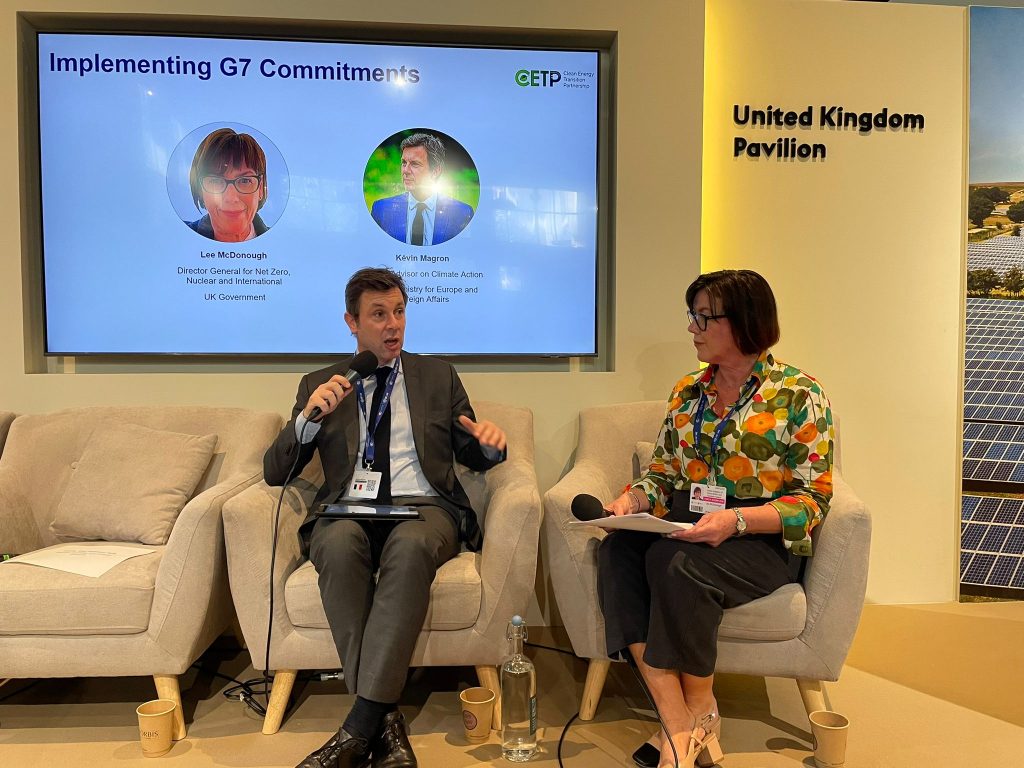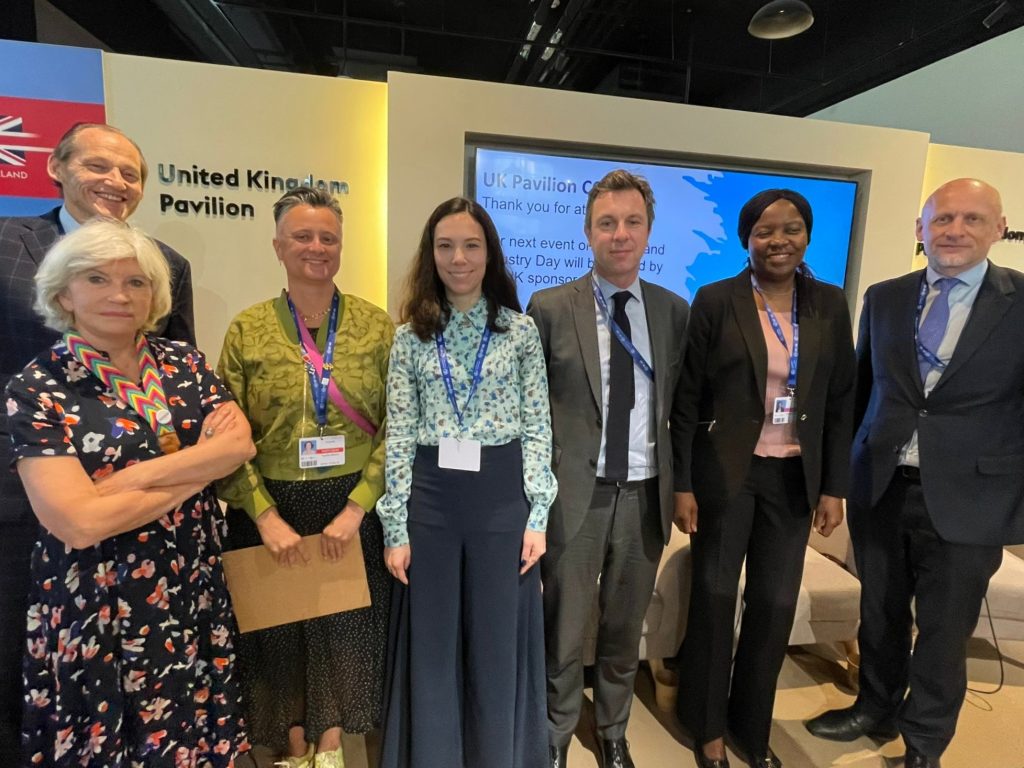- Norway and Australia are the latest countries to join the CETP.
- France and the UK showcase delivery of commitments and reporting by G7 countries.
- Panellists and presenters provide a clear call for action and advice for supporting clean energy in low- and middle-income countries.
The CETP underlined its central role in delivering an accelerated global energy transition through a range of announcements and interventions at a packed event on Energy and Industry Day at COP28 in Dubai.
The event, available to watch below, featured the exciting announcement that Norway and Australia have both formally signed the CETP.
Minister Terje Aasland of Norway and Assistant Secretary Kushla Munro of Australia took to the stage to make the announcement, highlighting their countries’ motivation to support the clean energy transition, and how they will implement the CETP commitment.
This was followed by a conversation between Lee McDonough (Director General for Net Zero, Nuclear and International at the UK Department for Energy Security and Net Zero) and Kévin Magron (Special Adviser on Climate Change, at the French Ministry of Foreign Affairs).
Discussing implementation of commitments, both noted the importance of consistency between countries and transparency – which has been significantly strengthened by several G7 countries publishing a summary of their policies on the CETP website shortly after the COP28 event. Building on the positive work of the CETP, G7 and groups such as Export Finance for Future, upcoming discussions on the OECD Arrangements for export credits were cited as another important forum for action on this topic.
The second half of the event was dedicated to the challenges and opportunities around scaling up support for the clean energy transition and the critical role of international public finance.
Tim Gould, Chief Energy Economist at the International Energy Agency, provided an excellent presentation on the catalytic role public finance can play in partnership with the private sector, to increase investment in clean energy in low-and-middle income countries.
Tim highlighted that, despite global increases in investment in clean energy, this growth is overwhelmingly concentrated in developed countries and China. Addressing this challenge is one of the IEA’s five pillars of keeping 1.5C alive and a key CETP priority.
Tim also emphasised the need not only to increase the availability of public finance, but also to use it more effectively to de-risk private investment, which is necessary to increase the availability of clean energy finance globally.

This was followed by a panel discussion chaired by Julia Beck, Chief Strategy and Impact Officer at UK Export Finance. Julia was joined on stage distinguished panellists, Vivienne Yeda Apopo, Director-General of the East African Development Bank; Prof. Laurence Tubiana, CEO, European Climate Foundation; Jock Geselschap, Head of Climate, Ministry of Foreign Affairs, Netherlands, and Kushla Munro, Assistant Secretary, Department of the Environment and Energy, Government of Australia.
Messages from panellists focused on a range of issues, most notably:
- The importance of action to lower the cost of financing clean energy projects in low-and middle-income countries, as well as managing the risks of potential stranded assets as the energy transition accelerates
- How clean energy investment can foster socio-economic development
- The progress already being made in transferring international public finance to clean energy, and the role public finance must play in crowding in much greater quantities of private capital.
- Panellists shared valuable advice, including that programme design should be relatively simple to attract private funders (as outlined by Jock Geselchap); promoting the use of guarantees to de-risk lending for the private sector (as mentioned by Vivienne Yeda Apopo) and the need to explore other innovative sources of public finance.
- However, as highlighted by Laurence Tubiana, there is still a significant misallocation of capital and therefore a need for signatories to show leadership in meeting their commitments.
- The benefits of CETP membership include knowledge sharing and technical assistance as signatories develop policies to end international support for fossil fuels, and sending a global signal that signatories are committed to scale up clean energy finance, noted by Kushla Munro as a key reason for Australia signing up.
“We need to take account of the real needs of the human population wherever they are” – Vivenne Yedo Apopo

“The general trend is accepted, but are we sure we can shift financially? This is the conundrum we need to solve to give confidence that countries can embark on the energy transition. The moment of truth is now to see reform of the financial system and a reallocation of finance” – Laurence Tubiana
It is clear that the CETP is instrumental to delivering this year’s COP priorities. International public finance, for which the CETP is the primary global initiative, will be key to enabling the delivery of the recently launched Global Renewables and Energy Efficiency Pledge, as well as a global commitment to phase out unabated fossil fuels, which we hope to see agreed by the end of this COP.” – Julia Beck
International public finance, and the CETP specifically, has a key role to play in accelerating the energy transition and delivering on several high-profile priorities being discussed at COP28. In particular, the CETP will be instrumental in implementing the recently launched Global Renewables and Energy Efficiency Pledge, ensuring that international public finance flows are aligned with these targets.
This will provide further momentum behind efforts to agree a global phase out of unabated fossil fuels. However, even faster action to fully align international public support behind the clean energy transition is necessary to ensure that the just transition from unabated fossil fuels to clean energy can happen at the pace required to keep the 1.5C temperature goal in reach.
We thank all of our speakers and attendees for joining us, and a full recording of the event will be made available shortly.

